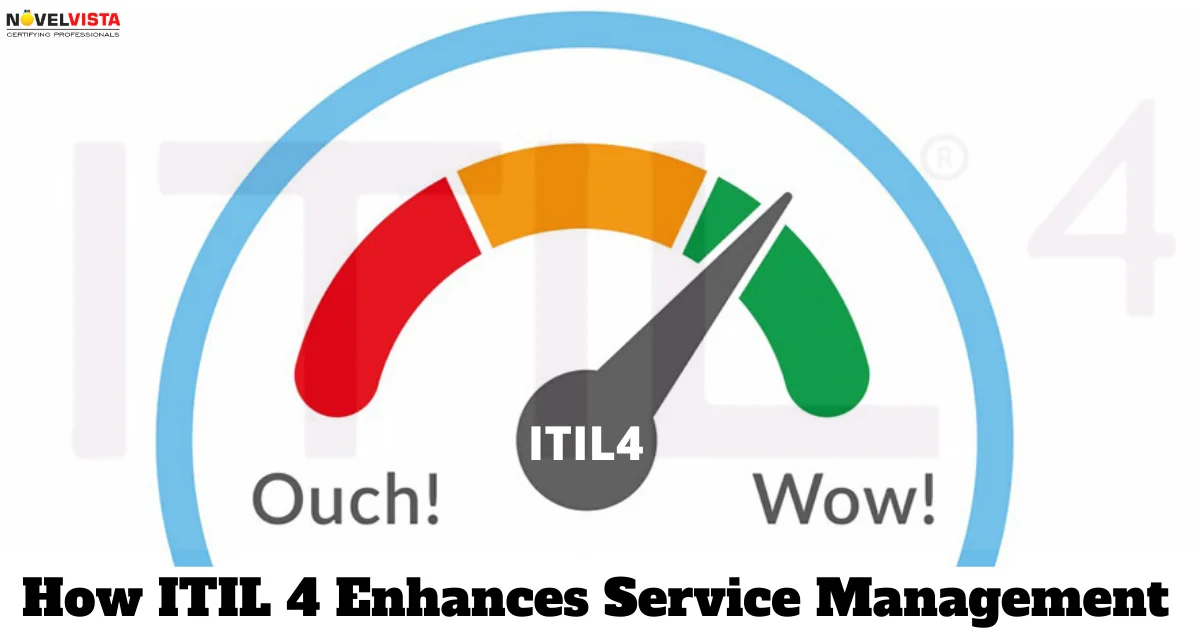Enroll Now and Get Upto 30% Off
* Your personal details are for internal use only and will remain confidential.

Last updated 22/07/2021

ITIL and service management go inseparably. However, comprehend that they aren't something very similar and that the terms can't be utilized reciprocally – regardless of whether it's service management in essence or IT Service Management (ITSM). A simple method to see this is while ITIL is a collection of service management best practices, not all assistance the board depends on ITIL.
Service Management is a lot of procedures, exercises, and arrangements – for example, capacities – that IT organizations use to set up, convey, and oversee everyday IT services (and, all the more as of late, for the management of services in different lines of business, for example, (HR) as well). For IT divisions, administration conveyance, and bolster exercises need structure so as to be viable and repeatable. This is the place ITIL comes in. Since ITIL is a universally perceived system of service management best practice, with it relevant for ITSM specifically. It's right now on rendition 4 – or ITIL 4 – and this gives direction on everything from setting up your (IT) service desk to nonstop improvement.
To support your association, this blog takes a gander at eight manners by which ITIL improves administration the board and ITSM specifically.
The fundamental region of center in the most recent variant of ITIL is on offering some value. Value to the business, value to end-clients, and value to forward clients. Worth truly is upfront in ITIL 4.
In this way, ITIL 4 rotates around esteem creation as opposed to simply conveying innovation administrations. As a feature of this, it has presented these service value systems (SVS) and service value chain which take a gander at the various segments engaged with service delivery that will help to co-make a value for clients.
Another region of center in ITIL 4 is the service relationship model to plan the connections between specialist co-ops and clients. Such service relationships are built up between elements to co-make esteem and incorporate service provision, service consumption, and service relationship management.
In ITIL 4, the service relationship model is upheld by relationship management practice. Its goal is to set up and improve the connections among IT and its partners by guaranteeing that:
Distinguishing and understanding the key players in your exercises is a key advance in any service management condition. These partners can incorporate procedure proprietors, administrators, clients, end-clients, senior administration, and outsider providers.
By having a strong partner the executives technique, your IT association can take out storehouses, make an increasingly straightforward workplace, and make more grounded commitment among IT and the remainder of the business.
One of the brilliant principles of ITSM is "consistently make it simple for individuals to utilize your services." ITIL assists with empowering this through the idea of a help inventory.
An assistance inventory expands the perceivability of administrations by posting what's accessible to some random piece of the business, it can go about as a statement of purpose for IT by expanding self-administration take-up, impact end-client practices with the request the executives, and advance supportive information content. It can likewise sign end-clients to logging their own episodes and administration demands.
ITIL 4 has a specific practice for risk management that aims to ensure that an organization recognizes and effectively manages risk.
Risk management ensures that decisions around risk are balanced such that the potential benefits are worth more to the business than the cost required to address the risk. This is done by ensuring that risks are:
Once a risk register is in place, it can be mapped onto the service catalog such that risks can be further prioritized against live business services.
All changes aren’t created equal. Technical deployments need to be treated very differently from, say, people change. Luckily ITIL 4 has you covered. There are several ITIL 4 practices that manage the different types of change, including:
Organizational change management – the practice of ensuring that changes in an organization are smoothly and successfully implemented and that lasting benefits are achieved by managing the human aspects of the changes.
Change enablement – the practice of ensuring that risks are properly assessed, authorizing changes to proceed, and managing the change schedule in order to maximize the number of successful service and product changes.
Release management – the practice of making new or changed services available for use.
Service request management – which covers making small service actions that have been agreed upon as being a normal part of service delivery. Examples of service requests include moving a PC for an end user, installing an application, or granting access to a network share.
Continual improvement is the ITIL 4 practice that looks at getting various aspects of service management better over time by making achievable improvements and then acting on feedback from the business.
In ITIL 4, continual improvement has brought in Agile concepts, advocating small bursts of improvement that are repeatable. Allowing for stability periods and then asking for and acting on feedback. It’s an improvement loop that means the service is always improving.
A huge benefit of ITIL per se is the level of help and support out there. As well as the official ITIL content there’s also help available via the global itSMF community, communities on social media, blogs, and webinar – the list of helpful ITIL-related guidance is endless.
So, that’s our view on how ITIL 4 enhances service management. What would you add to this list? Please let us know in the comments.
Topic Related PostNovelVista Learning Solutions is a professionally managed training organization with specialization in certification courses. The core management team consists of highly qualified professionals with vast industry experience. NovelVista is an Accredited Training Organization (ATO) to conduct all levels of ITIL Courses. We also conduct training on DevOps, AWS Solution Architect associate, Prince2, MSP, CSM, Cloud Computing, Apache Hadoop, Six Sigma, ISO 20000/27000 & Agile Methodologies.
* Your personal details are for internal use only and will remain confidential.